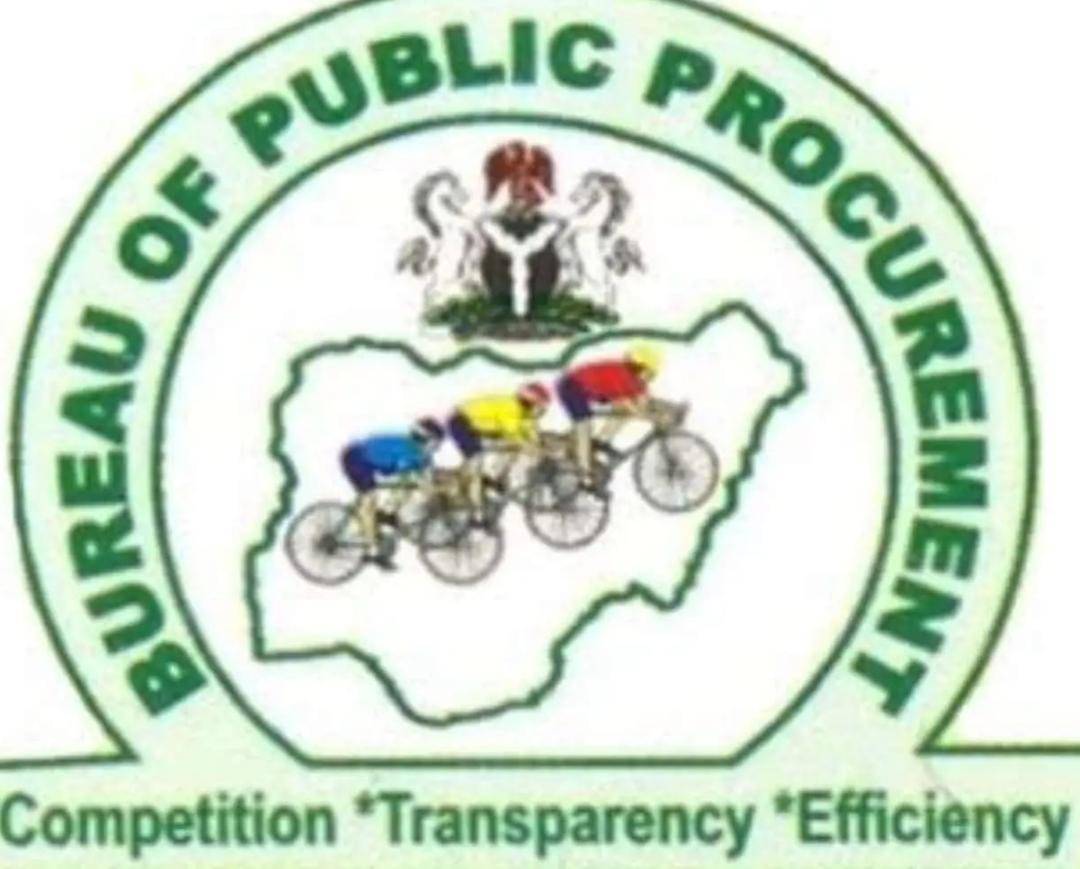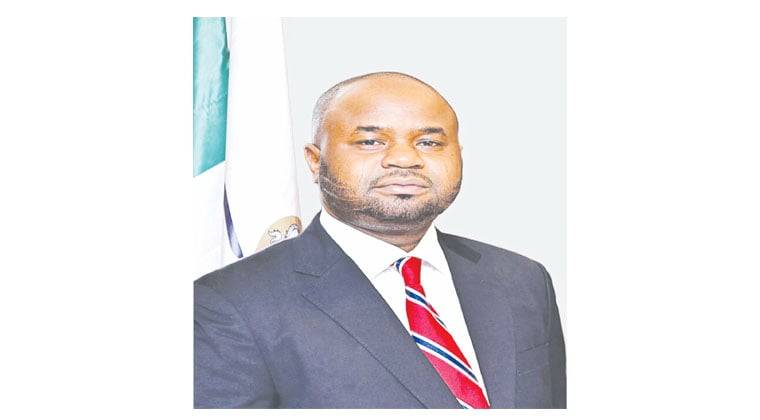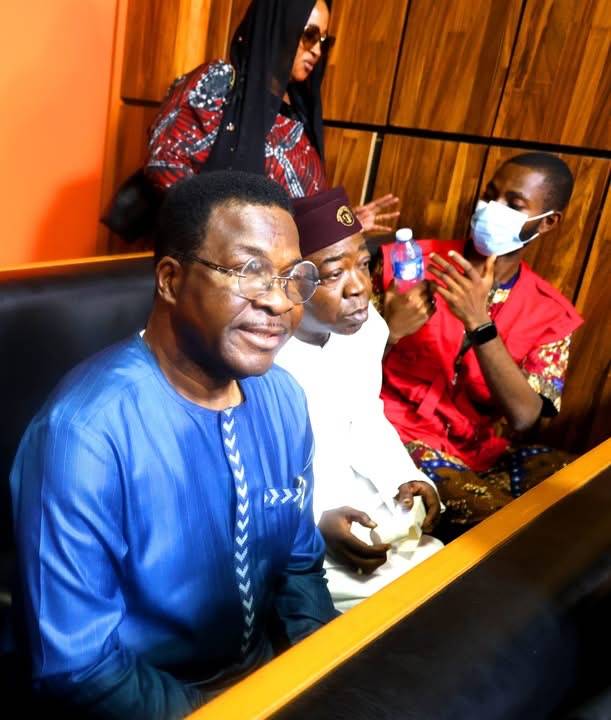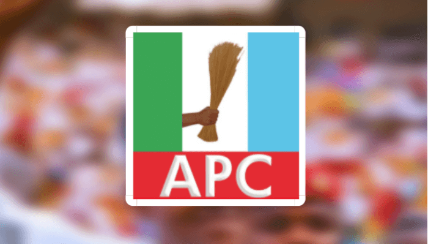By Segun Ayobolu
One of the most insightful assessments of the last two years of the President Bola Tinubu administration was undertaken, perhaps understandably, by the Chairman of the BUA Group, a leading investor in diverse productive sectors of the Nigerian economy, Alhaji Abdul Samad Rabiu. As a practical business operative at home with the realities of running functioning companies in Nigeria that engage in production, he was able to demonstrate with concrete examples the positive impact of the administration’s key reform policies including removal of fuel subsidy, merger of the parallel exchange rate markets and the consequent devaluation of the Naira, massive investment in infrastructure and temporary waiver of tariffs on agricultural imports among others on economic growth and development. Alhaji Rabiu ‘s hands -on understanding of the economy reminds one of the late Alfred Chief Alfred Rewane, another astute businessman, in his very public disagreements with the late Professor Ojetunji Aboyade, the brilliant but essentially theoretical economist, who was one of the academic pillars of military President, General Ibrahim Babangida’s Structural Adjustment Programme (SAP).
Unlike Mr Peter Obi, for instance, the presidential candidate of the Labour Party (LP) in the 2023 elections who is a substantial player in the Nigerian economy but only as a trader, importer and financial speculator with tangential involvement in production, Rabiu appreciates the critical significance of the Tinubu administration’s policies in expanding and strengthening the productive capacities of the economy. According to Alhaji Rabiu, “In infrastructure, the difference is also clear.
Look at the Lagos-Calabar highway. Look at the Sokoto-Badagry road. Look at the Kwara projects we are executing under the tax credit scheme.
Look at Kano-Kongolam. Look at the Okpella to Kogi State corridor. These projects are progressing because of the savings from subsidy removal and FX unification. With more revenue, Nigeria is building”.
Continuing, Rabiu states that “These roads and others being built are critical because logistics have become a major challenge. Transporting goods from Lagos to the North is very expensive due to bad roads. Now, the President is addressing this. With better infrastructure, logistics will improve, and businesses will grow. These reforms have enabled long-term planning and serious investment”. When he gives concrete examples of how the reforms have enhanced the investment capacity and activities of the BUA Group in the Nigerian economy, you readily understand why Rabiu, just like Alhaji Aliko Dangote, another development -oriented capitalist, cannot indulge in the unproductive fantasizing of a Peter Obi who loves to travel the world to spread his delusional gospel of a non-performing Tinubu administration armed with manufactured statistics of dubious provenance.
In the words of Rabiu, “Since President Tinubu took office, BUA Group has invested over one billion dollars in the Nigerian economy. We are expanding our food business, doubling our flour and pasta facilities in Port Harcourt and building another one in Lagos. Demand is increasing. People are earning more. Confidence is returning. We have also completed the first POP plaster manufacturing plant in Nigeria which is now operating and are soon starting construction of a 300 MW solar energy project in Sokoto State. In the oil and gas sector, we are completing our LNG project in Ajaokuta, Kogi State. These investments are possible because of stability that has been brought about by President Tinubu’s reforms. We can plan now. The exchange rate has been fairly stable for almost a year. FX is accessible. Money is coming in from different sources, and investors are responding. If you want 200 million dollars a week for trade, you can get it without lobbying anyone at the Central Bank. These are the results of good policies”.
Speaking this week at the inauguration of the access road to the Lekki Deep Sea Port in Lagos, Alhaji Dangote expressed similar sentiments. According to him, “Your leadership has been both decisive and reassuring. Your actions have reignited hope for a prosperous Nigeria of today and of the future. From the very start of your administration, Your Excellency has worked tirelessly to foster an enabling environment for private sector -led growth”. It is perhaps people like Rabiu and Dangote that Alhaji Abubakar Atiku was referring to when he said the Tinubu administration’s policies were benefitting the rich who are being made richer. It is not known when the Waziri Adamawa became a fire -belching revolutionary. But at least the two businessmen are contributing phenomenally to the growth of the Nigerian economy and generating mass employment through aggressive and unceasing investment in diverse sectors. Most of those of his friends to which several of Nigeria’s public enterprises valued at billions of Naira were auctioned for peanuts when Atiku statutorily supervised the privatization programme were criminally enriched without adding value to the national economy.
Dangote and Rabiu are not the only inspiring examples that suggest that the sustenance and consumation of the ongoing economic reform policies of the Tinubu administration may offer the last chance for the creation of the conditions to enable the Nigerian borgeosie become catalysts for national development. Any failure this time around may make ever more imperative far more radical and hardly peaceful or democratic options to force the country to break out of what is becoming to be perceived as an irresolvable developmental dead-end. This is why it is heartwarming that at least 22 manufacturing companies have so far benefitted from the disbursement of N16.1 billion loans of the N75 billion provided for under the Presidential Conditional Grant Scheme to strengthen their productive bases and expand their distribution lines at nine per cent interest rate annually. But it is now 14 months after the policy was first announced in December 2023 and it’s slow pace of implementation has been attributed to government bureaucratic delays.
The Bank of Industry (BOI), which is the vehicle for implementing the policy must surely devise strategies for companies to have accelerated access to these critical funds without compromising procedural rigour and integrity. This is particularly so as the plan as announced also includes provision of another N75 billion for 75,000 Micro, Small and Medium Enterprises (MSMEs) to obtain loans of N1 million each to support their businesses and cushion the adverse consequences of the reforms. The earlier the affected companies obtain and begin to utilize the loans, the better for the reforms and the brighter the prospects of achieving the objectives for which the fund is being injected into the economy will be.
Radical political economists make a distinction between waves of transient economic crises in African countries and the more fundamental challenge of underdevelopment. Unfortunately, Orthodox economists tend to conflate the two.
Thus, they often pursue policies that address the economic crisis in the short term, may achieve an appreciable rate of growth but still do not promote development in any concrete or meaningful manner. The radical political economist, Professor Okwudiba Nnoli, made this point in the late 1980s with regard to the SAP then being implemented and his submission remains valid. As he put it then: “The SAP is addressed to a steady and balanced growth, not to development. Therefore, it emphasizes changes in the indicators of growth, such as the gross domestic product, balance of payment, exchange rates, money supply, interest rates, privatization and liberalization of trade. It ignores the qualitative changes in society induced by changes in these parameters.”
Critical as these technical considerations are in economic policy formulation and implementation, they must be supported by the most crucial factor in achieving national development, which is the mobilization of the popular energies of the people to engage as active agents in the development process.
Unfortunately, this is where liberal economics is deficient and it is in the direct engagement of the people physically, psychologically, emotionally and spiritually to participate actively in and contribute concretely to the development process that ‘Tinubunomics’ can truly realize its potentials. For instance, with regard to food availability to curtail stratospheric prices, Alhaji Rabiu noted that the temporary tariff waivers on food imports granted by the Tinubu administration for six months, “allowed rice to be brought in and milled immediately. The hoarders were cut out.
Prices began to drop. It was a short-term solution, but it worked”.
But then, what happens when the tariff waivers expire after six months? Agriculture is one sector where large numbers of people can be mobilized to grow food on an expansive scale. The country has an abundance of fertile land.
In most parts, the climate is clement for productive agricultural activities. Already, considerable investment is being made made in the procurement and distribution of agricultural inputs such as seedlings, fertilizers and insecticides. Orders placed for tractors, harvesters and other mechanical appliances are being delivered. But these are not sufficient conditions to achieve munificent food production. Equally critical is the appropriate mobilization and organization of the people to engage in mass food production.
As has been advocated in this space a number of times, the organization of Nigerian farmers into viable Cooperatives has become an indispensable categorical imperative. It is hard but unavoidable work if we are to develop a thriving and vibrant agricultural sector. As Chief Obafemi Awolowo, who had thought deeply and written extensively on the issue, submitted in one of his lectures, “To this end, the oft-repeated and sound policies of the Federal and State governments towards Nigerian farmers of (1) organizing them into virile, viable and prosperous Cooperatives; (2) subsidy in kind, cash and services; (3) provision of finance and technical know-how; should now be pursued and translated into realities with unabating dispatch and vigour”.
Even the requisite security without which displaced farming communities cannot fully return to active work on their farms in a safe and conducive environment can only be achieved with the active involvement of the people. The people, organized to secure their communities but armed to a level not below that of those who ceaselessly attack and seek to seize their land, must be the basis of an effective community policing system under federal or state control. The proposed ‘Forest Rangers’ recently approved by the President must thus be essentially people and community-based. The President should urgently give a deadline for its recruitment, training, equipping and take-off as the restoration and sustenance of security across rural and urban communities across the country is critical to the ultimate success of ‘Tinubunomics’.













